BALTIMORE, MD — The Maryland Zoo in Baltimore is happy to announce that four African penguin chicks have hatched at the Zoo already this year. “Breeding season started early this year, and these are the first chicks to hatch,” said Jen Kottyan, avian collection and conservation manager. “So far they are thriving under the care of their parents, and growing substantially at each check.” The chicks hatched on Sept 22, 28, and 30, with the fourth hatching on Oct 15.
The Maryland Zoo houses a colony of African penguins that are native to the shores and islands of South Africa. “In our penguin colony, breeding season runs September through February, which coincides with spring and summer in the Southern Hemisphere,” continued Kottyan. “Contrary to popular belief, not all penguins are cold weather birds. African penguins are from a climate similar to ours here in Maryland, and that has proven to be one factor in the success of our breeding program at Rock Island.”
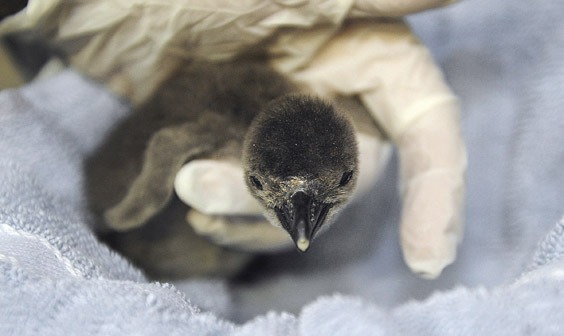
The Maryland Zoo has been a leader in breeding African penguins for over 30 years, winning the prestigious Edward H. Bean Award for the “African Penguin Long-term Propagation Program” from the Association of Zoos and Aquariums (AZA) in 1996. The Zoo has one of the largest colonies of the birds in North America, ranging from 45-60 birds at any given time, and is currently building a new penguin exhibit, that will be able to house as many as 100 penguins. “We have more than our usual breeding recommendations this year as we begin to increase our numbers for the new exhibit,” explained Kottyan. “Our penguins are bred according to recommendations of the AZA African Penguin Species Survival Plan (SSP) which helps maintain their genetic diversity.” Many of the African penguins previously bred at the Zoo now inhabit zoo and aquarium exhibits around the world.
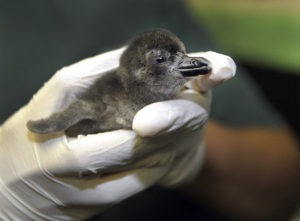
Penguin chicks take 38-42 days to hatch out of their eggs after they are laid. Zoo keepers monitor development of the eggs by candling them about a week after they are laid to see if they are fertile and developing. The eggs are then placed back with the parents. “Both the male and the female take turns sitting on the eggs,” said Kottyan. “Once the eggs hatch, parents take turns caring for their offspring; they each protect, feed, and keep the chick warm for 2-3 days and then switch off.”
At Rock Island, chicks stay with their parents for about three weeks after they hatch and are fed regurgitated fish from their parents. During this time, zoo keepers and vets keep a close eye on the development of the chicks, weighing and measuring them daily for the first week to make sure that the parents are properly caring for each chick.
When a chick is 3-weeks-old, the keepers remove it from the nest, and start to teach the chick that they are the source of food. This step is critical as it will allow staff to provide long term care for the birds including daily feeding, regular health exams and both routine and emergency medical care. “It is also true that baby penguins do not like the water. So, we even need to give them baths and swimming lessons,” stated Kottyan. “Although they may initially balk, we have to get them in the water to mimic the training the parents would do in the wild to get their chicks used to swimming. They are quick learners, and are very soon swimming around on their own.”
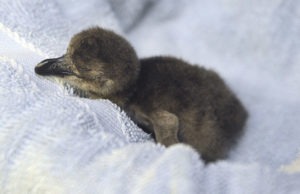
While the fuzzy grey chicks will not be on public view, visitors to the Zoo can see the both juvenile and adult penguins year round. “You can tell the difference between the juveniles and adults, as the juveniles do not have the stark black-and-white coloring that adults do; they are a bit more grey until they molt into their adult plumage,” said Kottyan. “And weather-wise, even though it does get cold here, our penguins have been known to hang outside and chase snowflakes at times. However their door is always open should they choose to come inside.”

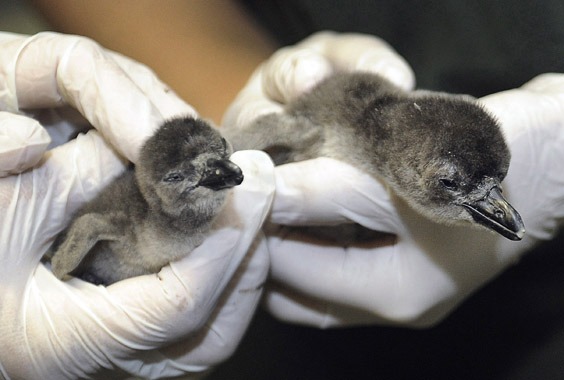
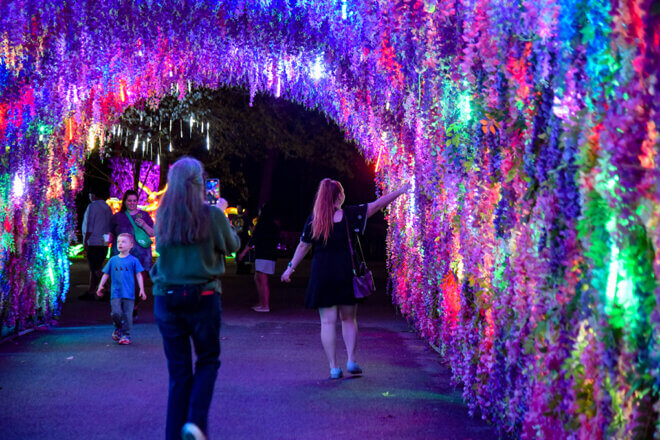
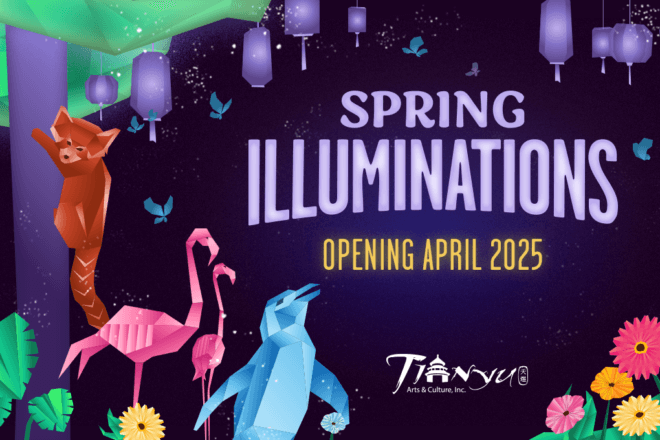
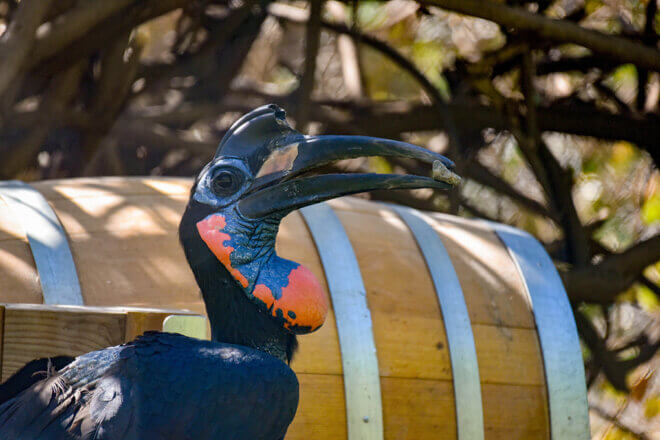
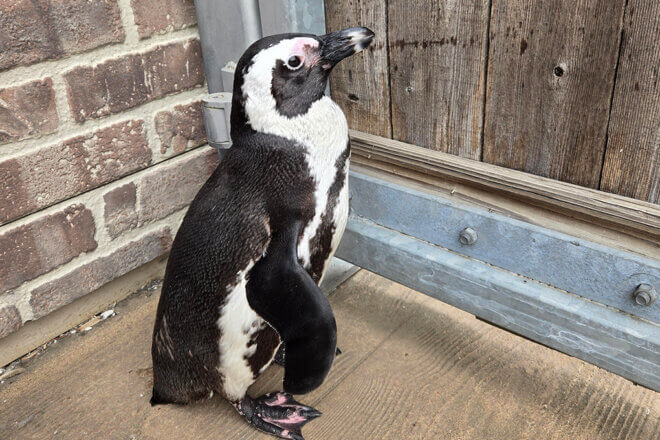
Share this article